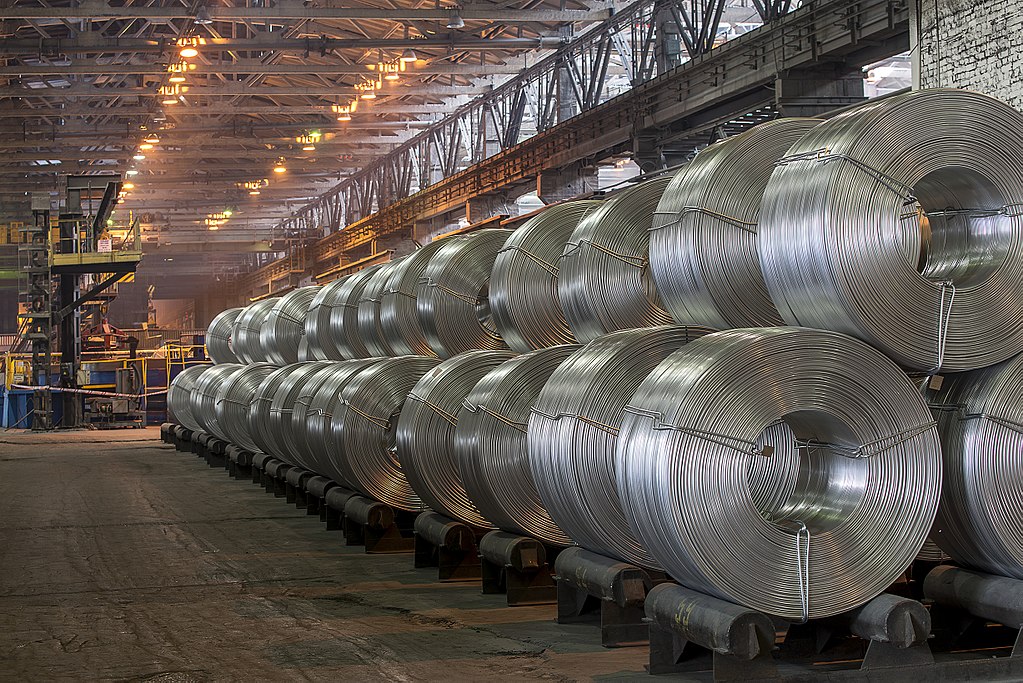Will China put more metals on the market?

China will draw on its reserves and place more copper, zinc and aluminum on the market. All the details and objectives
Yesterday, China announced that it will place quantities of industrial metals on the market by drawing on national reserves. The move – for the first time in about ten years – is aimed at lowering the prices of raw materials, increasing their availability.
WHAT CHINA WILL DO
The National Agency for Food and Strategic Stocks, a Chinese government agency, has announced that "in the near future" it will release lots of copper , aluminum and zinc to companies that process them through a public auction. No details on quantities were provided.
HOW ARE PRODUCTION PRICES AND CONSUMER INFLATION
The decision is directly linked to the increase in the prices of raw materials – ferrous minerals and non-ferrous metals such as copper, in fact – on the markets, stimulated by the recovery after the coronavirus crisis. Copper, in particular, is key to building electric car and renewable energy infrastructure.
In China, last May, production costs in factories grew at the highest rate of the last twelve years: the producer price index marked a +9.0 per cent, raising fears of an increase in prices for consumers.
In May, consumer price inflation in China rose by 1.3 per cent, less than expected and well below the target set by the government (3 per cent). The situation on this front, therefore, seems to be under control.
AN ADVANCED DECISION
In short, what worries Beijing is the profit margins of the industries.
The possibility that Beijing would release quantities of metals on the market had been talked about for some time. According to Citi analysts, this move would have served to "counter the surge in commodity prices by managing market expectations and dissuading speculators, rather than solving some physical shortage of material".
According to reports from the Financial Times , which in turn takes up the Chinese press, Beijing allegedly ordered state-owned companies to reduce exposure to foreign commodity markets.
HOW ARE THE PRICES OF COPPER, ALUMINUM AND ZINC
In May, copper prices traded in London – an international benchmark – hit a record high of $ 10,747.50 a ton: prices rose 60 percent compared to March last year, when the pandemic collapsed. the question. The prices of aluminum, on the other hand, are at their highest since 2010 and those of zinc since 2007.
However, their value declined on Tuesday, following the anticipation of the release of Chinese reserves. Copper prices lost 0.2 per cent ($ 9,950 per ton), aluminum by 0.4 per cent ($ 2,458 per ton) and zinc prices by 1.75 per cent ($ 2,978 a ton). tonne).
WHAT DOES CHINA (REALLY?) WANT
It is not clear exactly how much China's state reserves of industrial metals are. However, according to analysts' estimates reported by the Financial Times , Beijing could have accumulated 500,000 tons of copper, 1.5 million tons of aluminum and 700,000 tons of zinc.
The numbers of Citi are somewhat different: the copper reserves would amount to 2 million copper, those of aluminum to 800 thousand tons and those of zinc to 350 thousand tons.
Colin Hamilton, an analyst at BMO Capital Markets, told the British newspaper that Beijing is unlikely to release significant quantities of metals to the market. Rather than actually changing the situation, the government would aim above all to send the message "that prices should be lower" to the Chinese market.
China is the world's largest consumer of copper, zinc, aluminum and many other raw materials. Only copper, it uses about 15 million tons per year.
This is a machine translation from Italian language of a post published on Start Magazine at the URL https://www.startmag.it/economia/cina-metalli-rame-zinco-alluminio-riserve/ on Thu, 17 Jun 2021 12:04:45 +0000.
